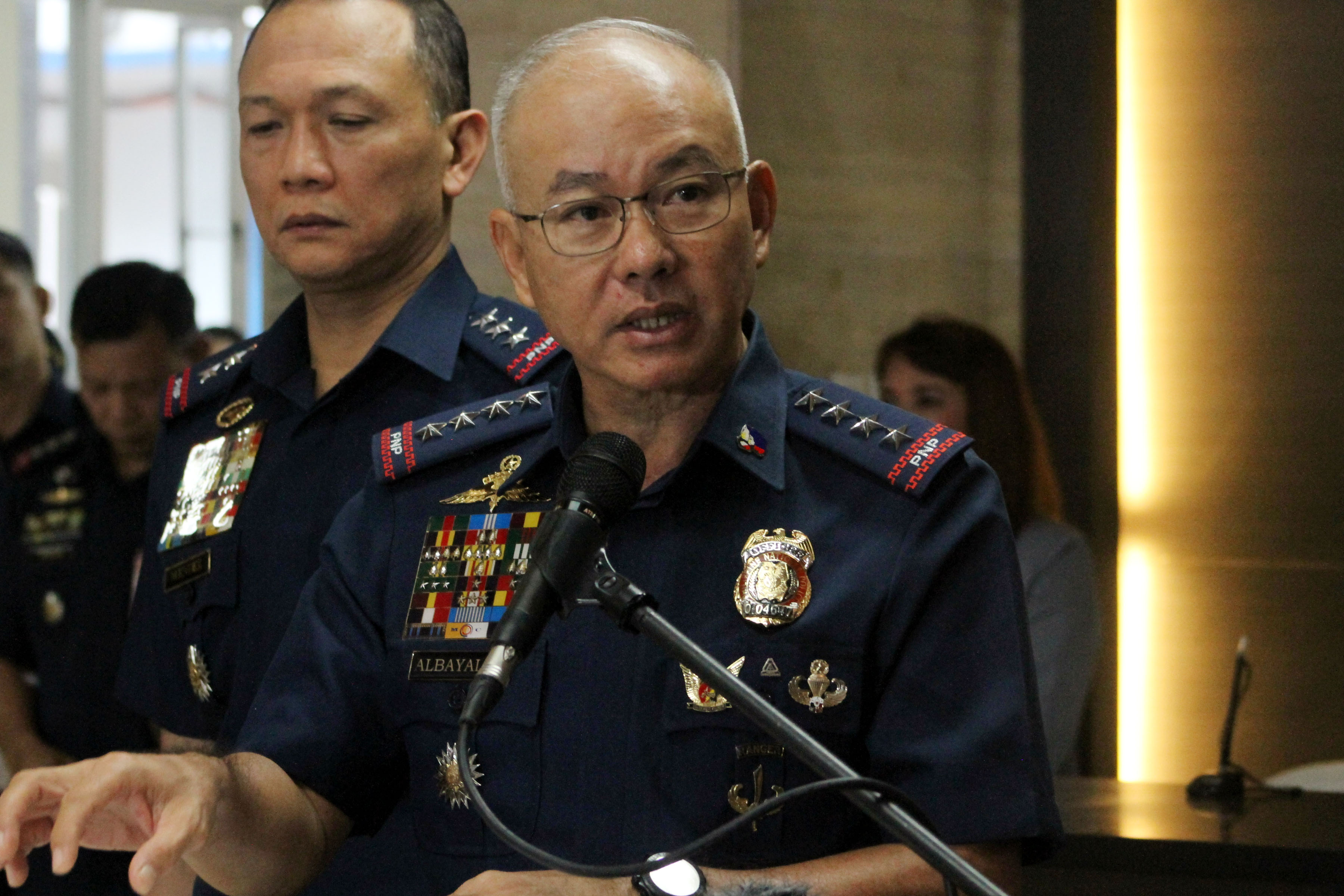Headline
Academic leaders ‘enlighten’ PNP execs on student activism

“We just concluded today an informal and exploratory dialogue among representatives from the government security sector and the academe as a confidence-building measure to foster a better understanding of some pressing national issues,” PNP chief, Gen. Oscar Albayalde told reporters in a press briefing in Camp Crame. (File photo by Joey O. Razon/PNA)
MANILA — The Philippine National Police (PNP) on Tuesday met with top officials of the academe who enlightened them on the issue of academic freedom in connection with some militant student groups and organizations’ stand against the entry of military and police personnel in school campuses.
“We just concluded today an informal and exploratory dialogue among representatives from the government security sector and the academe as a confidence-building measure to foster a better understanding of some pressing national issues,” PNP chief, Gen. Oscar Albayalde told reporters in a press briefing in Camp Crame.
Albayalde said their meeting with Commission on Higher of Education Chairman Prospero de Vera, University of the Philippines (UP) president Dr. Danilo Concepcion and members of the UP Board of Regents; Polytechnic University of the Philippines president Dr. Emmanuel De Guzman and representatives from the Ateneo de Manila University and De La Salle University is the first of the series of consultations on how the police and the military would effectively engage students amid reports of communist rebel recruitment.
“We are thankful to the officials of the academe for enlightening us on academic freedom and how we can best serve the students and the academic community. We hope that today’s meeting will usher a series of dialogues and consultation to explore common ground where government and the academe can fulfill its respective mandates,” the PNP chief stressed.
Albayalde said that they only have the best intentions for the students and other members of the academe.
“For our part in the security sector, PNP seeks to build stronger collaboration among stakeholders employing the ‘whole of nation’ approach and protect campuses against criminal activities, drug syndicates, and shadowy organizations that promote and espouse Local Communist Armed Conflict against government thru force and violence,” Albayalde said.
“We assure the public and the academe community that we will do our best to fulfill our sworn duty, to serve and protect. We only have the best interest of the youth backing our pure good intention to establish police presence in schools against crime, exploitation, and abuse,” he stressed.
De Vera, meanwhile, said the first step to a good working relationship between the government security forces and the academe is to establish common protocols to avoid misunderstanding, particularly in dealing with UP.
UP students and faculties have been criticizing the plan of the police and the military to enter their campuses, saying it is a form of curtailment of academic freedom.
“What do you mean by common protocols? It can be as basic as information-sharing kasi ngayon kung talagang hindi kayo nag-uusap, wala kayong (because now, if you don’t talk to each other, you won’t have an) agreement,” de Vera said.
“The UP police does not have information on the crime situation, drug situation inside the campus because they don’t have the capability to do that.
The PNP has better capability to do that. It can start from very basic sharing of protocols. It can be common training so that the standards of enforcement of the UP police will be up to par okay,” he added.
Earlier, Albayalde said there is nothing wrong with student activism so long as it is expressed through lawful means and actions.
While stressing that security forces will remain tolerant of lawful activities, Albayalde said they will be firm and uncompromising in addressing acts of willful violence, disobedience, anarchy and disrespect for the rule of law.
Albayalde also reiterated that there is no militarization in universities and other campuses as claimed by the militant groups.





















